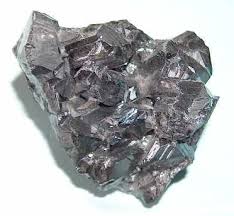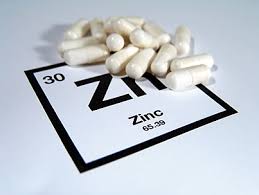Zinc ‘keeps immune system in check’
Reference with thanks to the BBC
Researchers say they have gained a key insight into how zinc helps the immune system fight infection.
A study shows that zinc stops the immune system from spiralling out of control, as happens when people develop sepsis.
The researchers say the findings could also explain why taking zinc supplements at the start of a cold can stem its severity.
It is thought the finding could have implications for other diseases.
Although research has highlighted the importance of zinc for the immune system, because the mineral has many complex roles in the body it is not understood in any detail how it helps fight off infection.
After previous studies in mice, the researchers from Ohio State University had shown that zinc-deficiency could lead to excessive inflammation.
This is what happens in sepsis, when in response to a severe infection, the body goes into overdrive, with potentially fatal consequences.
Feedback loop
Through further experiments in human cells and animal studies the researchers found that a protein called NF-kB lured zinc into the immune cells that responded fastest to fight infection.
Once inside, the zinc then put the brakes on further activity in the NF-kB pathway, slowing down the immune response and limiting the amount of inflammation, the study, in Cell Reports, indicated.
It was effectively a feedback loop, stopping the process getting out of hand, the researchers said.
Study leader, Dr Daren Knoell, said: “The immune system has to work under very strict balance, and this is a classic example of where more is not always better.
“We want a robust inflammatory response, which is part of our natural programming to defend us against a bug.
“But if that is unchecked, and there is too much inflammation, then it not only attacks the pathogen but can also cause much more collateral damage.”
He added that the finding narrowed the gap in scientists’ understanding of the role zinc had in fighting infection, but that it was too early to make the leap to zinc as a treatment for sepsis.
Intriguing
Zinc has been shown to reduce the severity of the common cold in humans and possibly shorten its duration.
“Whether this is because of improved balance in immune function, similar to what we report with sepsis, remains to be proven but perhaps requires further study,” Dr Knoell said.
Prof John Beattie, head of the micronutrients group at the University of Aberdeen, said NF-kB cropped up in many processes in the body, including atherosclerosis, which leads to blocked arteries seen in heart disease and has been linked to zinc deficiency.
“The implications of the work extend beyond the impact of zinc on innate immune function,” he said.
Thanks again to the BBC health section
From Osteopathic Life Clinic the Following are pretty good sources for Zinc
The EU recommended daily intake is
15 mg for men
12 mg for women.
An additional number of benefits of including Zinc in the diet are seen in wound healing, immune system as mentioned in the BBC article and prostate function as well as skin health.
Zinc value in milligrams per 100 gram serving
| Oysters 148.7 mg | Ginger-root 6.8 mg |
| Hazelnuts 2.4 mg | Garlic 0.6 |
| Pecans 4.5 mg | Whole wheat (bread) 0.5 mg |
| Brazil Nuts 4.2 mg | Buckwheat 2.5 mg |
| Almonds 3.1 mg | Whole wheat 4.2 mg |
| Walnuts, 3.0 mg | Rye 3.2 mg |
| pumpkin seeds 7.5 mg | Oats 3.2 mg |
| Lima beans 3.1 mg | Black beans 0.4 mg |
| Split peas 4.2 mg | Green Peas 1.6 mg |
| Turnips 1.2 mg | Parsley 0.9 mg |
| Potatoes 0.9 mg | Carrots 0.5 mg |

